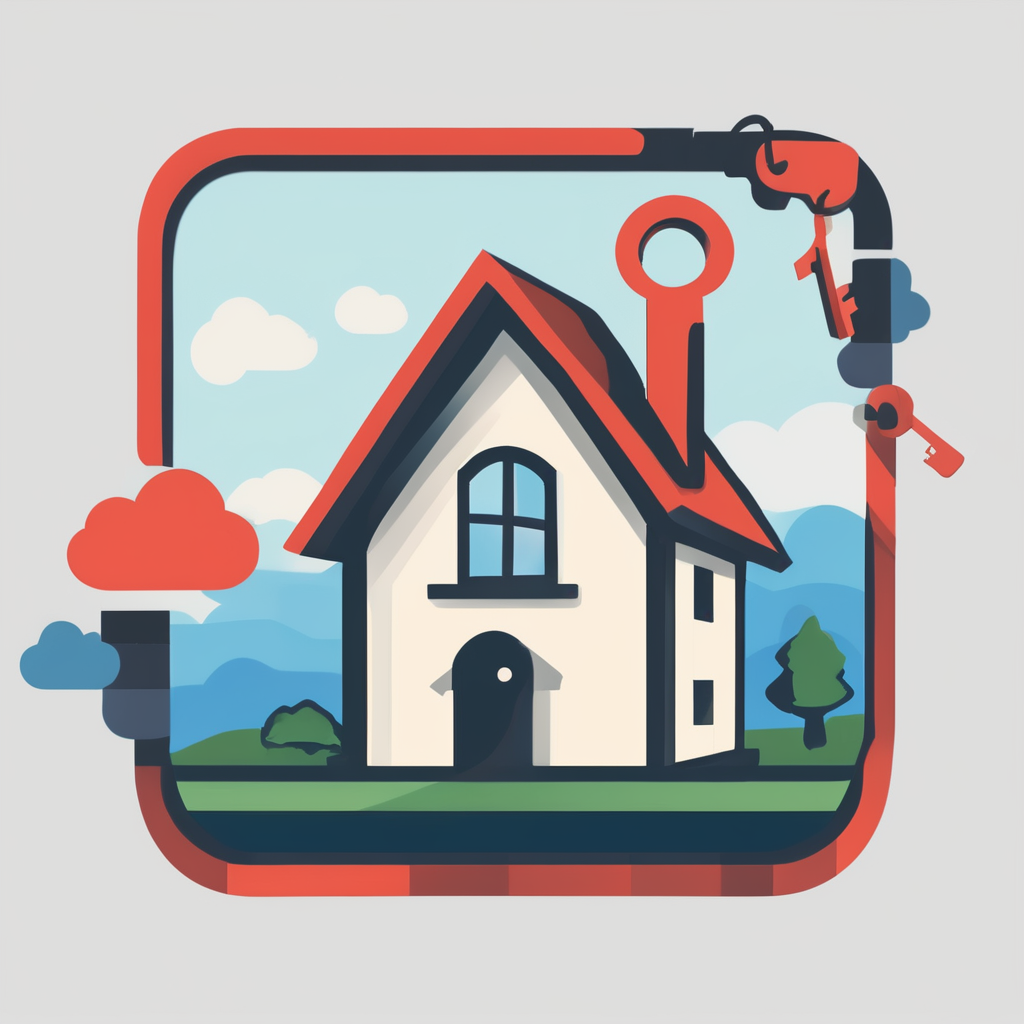Overview of Heat Pumps
A heat pump is an innovative device that transfers heat from one place to another, effectively providing heating and cooling functions in homes. Unlike traditional heating systems that generate heat, heat pumps work by moving thermal energy, making them highly efficient.
Types of Heat Pumps
There are several types of heat pumps suitable for use in UK homes. The most common include air source heat pumps, ground source heat pumps, and hybrid systems. Air source heat pumps extract warmth from the air and are relatively easy to install, while ground source heat pumps collect energy from underground, offering higher efficiency but requiring more initial investment. Hybrid systems combine heat pump technology with traditional boilers for maximum flexibility.
Topic to read : Selecting the perfect foundation for your conservatory in the uk’s tough clay soil
Heat Pump Benefits
Installing a heat pump offers numerous benefits. It significantly improves energy efficiency by reducing reliance on fossil fuels and lowering carbon emissions. Moreover, heat pumps can lead to costs savings through reduced energy bills. Their dual capability to provide both heating in winter and cooling in summer enhances home comfort year-round. The government’s push towards greener solutions also includes incentives, making heat pumps a sustainable and economical choice for homeowners.
Planning Your Retrofit
Before embarking on a heat pump retrofit, it’s crucial to assess your home’s current heating system. Begin by understanding how your existing setup impacts energy efficiency. An assessment offers invaluable insights into thermal performance, aiding in identifying areas of improvement. This step is foundational to ensure that a heat pump will effectively meet your needs.
Have you seen this : Ultimate guide to maintaining your uk home”s chimney for peak performance
Evaluating Energy Efficiency Needs
When evaluating energy efficiency needs, consider factors like insulation quality, window types, and overall home design. These elements influence how well a heat pump performs. Energy-efficient homes generally require less power, making a heat pump more cost-effective.
Factors to Consider
Prior to installation, factor in your home’s size and specific heating demands. The larger the space, the more robust the system needed. Additionally, consider local climate conditions, as these will affect heat pump efficiency.
Partnering with specialists for guidance is beneficial. Experts offer tailored advice, ensuring your retrofit strategy aligns with both environmental factors and energy efficiency goals. Recommendations based on home assessments are integral for a successful retrofit, enabling optimal performance and sustainability.
Selecting the Right Heat Pump
Choosing the perfect heat pump for your UK home is crucial for energising efficiency and comfort. Comparisons between air source and ground source heat pumps highlight differing benefits. Air source heat pumps are generally easier to install and less expensive upfront, while ground source options, extracting energy from the earth, often promise higher efficiency and savings over time.
When selecting a heat pump, expert recommendations suggest prioritising models suited for the UK climate. Look for features such as variable-speed compressors, which adjust output based on demand, enhancing overall efficiency. Always consider the unit’s size relative to your home and its specific heating requirements.
Consulting with professionals ensures you make an informed choice. Specialists can offer tailored advice based on home assessments, ensuring your selection aligns with environmental considerations and personal preferences. This collaborative approach guarantees your chosen heat pump integrates seamlessly into your existing setup.
In addition to expert guidance, a general feature checklist includes:
- Noise levels: Low-decibel operation is ideal for residential areas.
- Energy ratings: Higher ratings typically indicate better efficiency.
- Warranty terms: Extended warranties can signify manufacturer confidence.
By evaluating these factors, homeowners invest in a heat pump that delivers both comfort and savings.
Installation Process
A seamless installation process is essential for harnessing the full potential of a heat pump. Engaging qualified professionals is crucial in ensuring your system is installed to both meet efficiency standards and function effectively from the get-go. Certified installers possess the expertise to handle complex technical aspects, providing assurances against common pitfalls.
Key Steps in Installation
The installation process typically begins with an on-site assessment. This evaluates your home’s layout and system requirements. A well-executed assessment informs critical decisions, including optimal positioning and system size, ensuring maximum performance.
Post-evaluation, the next phase involves the installation of both indoor and outdoor units. Careful placement of units is vital, with factors like airflow and noise levels taken into consideration. Installation includes connecting the system to the existing ductwork and power supply.
Considerations for a Smooth Installation
- Permits and regulations: Ensuring compliance with local municipal laws is crucial.
- Site preparation: Clear areas for both indoor and outdoor units to facilitate ease of installation.
- Timely schedules: Plan around suitable timeframes to mitigate disruption.
Engaging professional services for heat pump installation not only ensures compliance with standards but also guarantees support for future maintenance needs.
Understanding Costs and Financial Implications
Navigating heat pump costs is key for any prospective buyer. Initial costs for retrofitting are influenced by the type of heat pump and installation complexity. For instance, ground source heat pumps typically involve higher upfront expenses due to the need for extensive ground work. Conversely, air source heat pumps offer more affordable initial pricing.
Fortunately, several financing options exist to aid in managing these costs. Many UK homeowners benefit from government incentives aimed at promoting eco-friendly solutions. These may include grants or low-interest loans specifically designed to offset expenses associated with heat pump installations.
Significant long-term savings further enhance the appeal of heat pumps. By substantially lowering energy consumption, homeowners can see a reduction in monthly utility bills. Additionally, investing in this technology often results in increased property value, making it a prudent financial decision.
Taking advantage of government rebates and incentives can help ease the financial impact. These initiatives not only facilitate initial investment but also support sustainable living by reducing reliance on fossil fuels. Always consult experts to explore potential savings tailored to your situation, maximising the economic benefits of your heat pump installation.
Regulatory Compliance and Standards
Installing a heat pump in your UK home requires proactive attention to heat pump regulations. Understanding and adhering to compliance standards is necessary to ensure your installation meets government norms. The UK has specific building regulations to safeguard energy efficiency and safety, demanding compliance from both homeowners and professionals.
UK building regulations offer guidance on the performance and installation of heat pumps, emphasising energy conservation and environmental protection. These regulations mandate that heat pumps achieve specific efficiency ratings, ensuring that they contribute to carbon emission reductions. Complying with these standards not only avoids legal issues but also guarantees that your system operates at its best.
Homeowners must verify that their installation process aligns with local ordinances and energy standards. It is advisable to engage with qualified professionals who understand these compliance criteria. Doing so ensures that installations are both lawful and efficient.
To stay informed, leverage resources provided by governmental and environmental organisations. They offer updates on changes in legislation and best practices for heat pump retrofit planning. This knowledge empowers homeowners to make informed decisions, ensuring that their investments deliver optimum performance and sustainable benefits.
Maintenance and Upkeep
Regular heat pump maintenance is key to ensuring efficient operation and extending system longevity. Essential tasks include checking air filters monthly; they should be cleaned or replaced as needed to maintain airflow and efficiency. Inspecting and cleaning the outdoor unit is also crucial, as debris like leaves or snowfall can obstruct efficient functioning.
Scheduling annual servicing by a professional is highly recommended. These check-ups involve inspecting electrical connections, testing thermostat operations, and verifying refrigerant levels. Professional services ensure that any potential issues are identified early, preventing costly repairs.
Recognising signs that your heat pump might need attention can save you from larger problems later. Unusual noises, reduced heating or cooling capacity, and inexplicably higher energy bills are all indicators your system may be underperforming. Addressing these issues promptly can avert further damage and maintain optimal performance.
Adhering to these upkeep tips not only boosts efficiency but also extends the lifespan of your heat pump. By investing in regular maintenance, you safeguard your home’s comfort and continue to benefit from energy savings.
Real-Life Case Studies
Exploring real-life case studies offers invaluable insights into the practical application of heat pumps in UK homes. These stories highlight the versatility and effectiveness of different types of heat pumps—from air source to ground source systems. By examining these retrofitting examples, homeowners gain a clearer picture of potential challenges and solutions.
One noteworthy project involved a Victorian-era home, where a ground source heat pump was installed to improve energy efficiency significantly. Despite the initial complexity of installation, the system provided substantial savings on energy bills and a marked reduction in carbon emissions, showcasing the substantial benefits of heat pumps.
Learning from home success stories, prospective adopters can see firsthand how proper heat pump retrofit planning leads to enhanced comfort and savings. A small rural house managed to halve its energy costs through a well-planned retrofit, leveraging government incentives and expert recommendations.
These examples demonstrate best practices such as thorough home assessments, strategic planning, and the importance of professional advice. Such case studies not only debunk common myths but also equip potential adopters with practical strategies. They underscore the profound impact of heat pump technology on energy efficiency and sustainability.
Frequently Asked Questions
Addressing heat pump FAQs can clarify common concerns and offer expert answers. One frequent question is, “Are heat pumps efficient in cold climates?” Yes, heat pumps are designed to be efficient, even in colder climates, such as in the UK. Modern models use variable-speed compressors to adjust output based on temperature, ensuring continued effectiveness.
A common misconception is that heat pumps are noisy. However, innovations have led to low-decibel technologies that operate quietly, particularly in residential areas. Selecting a model with a focus on noise reduction can provide a peaceful installation.
Another concern is the lifespan of heat pumps. With regular maintenance, heat pumps generally last between 15 to 20 years. Routine checks and timely repairs extend their longevity, ensuring prolonged efficiency. It’s crucial to schedule professional servicing to catch and address minor issues before they become significant problems.
Guidance on reliability often involves expert recommendations for choosing robust models. Selecting devices with superior energy ratings and extensive warranty terms can enhance performance and assure homeowners of long-term value. Regular consultation with heat pump professionals strengthens reliability, ensuring your system meets your home’s specific needs efficiently.



